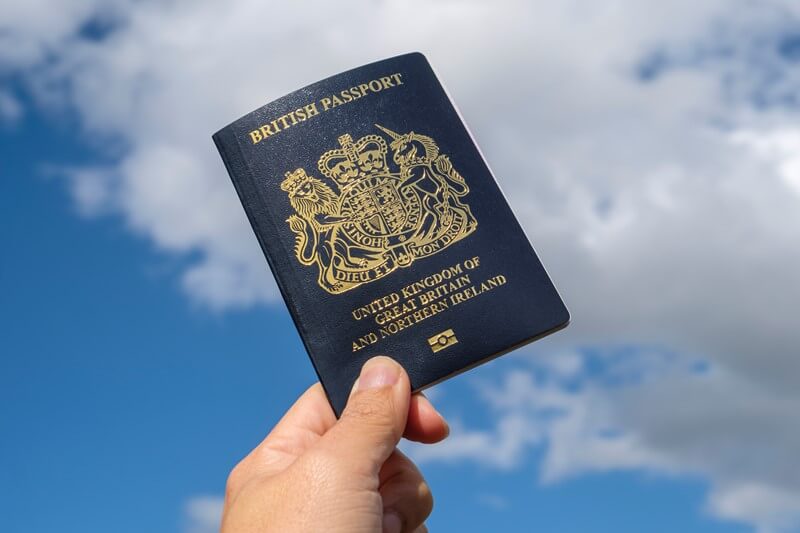That was the question the Supreme Court was asked in two very similar cases, N3 and ZA.
Background:
N3 is a British citizen who was born in Bangladesh in 1983 and acquired Bangladeshi citizenship at birth. Both of his parents were naturalised British citizens so N3 was also a British citizen at birth.
E3 is a British citizen who was born in the United Kingdom in 1981. Both of E3’s parents were Bangladeshi citizens at the time of his birth, so he is also a Bangladeshi citizen by descent.
In 2017, the Secretary of State made orders depriving N3 and E3 of their British citizenship on the grounds that they had participated in Islamic terrorist organisations and that they posed a threat to national security. The Secretary of State considered both N3 and E3 to be dual British-Bangladeshi nationals and therefore depriving them of British citizenship would not make them stateless.
Both E3 and N3 appealed against the decision on a number of grounds including that they no longer held Bangladeshi citizenship, and the order rendered them stateless. In November 2018, the Special Immigration Appeals Commission (SIAC) held that they did cease to be Bangladeshi citizens at the age of 21 based on Bangladeshi law. The Secretary of State appealed against the decision of the SIAC.
On 10 June 2019, E3’s daughter, ZA, was born in Bangladesh. If E3 had been a British citizen at the time of her birth, ZA would also have had British citizenship by descent.
In November 2019, the Court of Appeal (CoA) allowed the Secretary of State’s appeal in the cases of E3 and N3 and remitted the matter to SIAC. In March 2021, SIAC handed down its judgement in separate cases concerning other alleged dual British-Bangladeshi nationals in a similar situation to E3 and N3, concluding that these individuals had lost their Bangladeshi citizenship at the age of 21 and, therefore, depriving them of their British citizenship would render them stateless.
In light of the SIAC’s judgement, on 20 April 2021, the Secretary of State wrote to E3 and N3 stating that the deprivation orders had been withdrawn and that their British citizenship had been reinstated. Solicitors acting for E3 and N3 contested that their citizenship needed to be ‘reinstated’ as the order has always been unlawful. This would also mean that ZA would have had British citizenship at birth through E3. The Secretary of State refused this interpretation and, in 2021, N3, E3 and ZA sought judicial review of the Secretary of State’s refusal to accept that E3 and N3 were British citizens during the relevant period.
Their claims were dismissed by the High Court and their appeals were dismissed by the CoA. N3 and ZA appealed to the Supreme Court.
Decision:
The Supreme Court unanimously allowed ZA’s appeal in full and N3’s appeal in part. The Supreme Court held that, when a deprivation order is withdrawn, it is to be treated as having no effect for the purpose of determining an individual’s citizenship status in the period from the date of the order until it is withdrawn. In other words, E3 and N3 must be regarded as having British citizenship throughout this period. As a result, ZA should be regarded as a British citizen at the time of her birth. However, a successful appeal does not necessarily mean that the original decision was unlawful.
To reach this conclusion, the Supreme Court first analysed the legal framework surrounding the acquisition of British citizenship. The Judge also reiterated the UK's obligation to avoid rendering someone stateless as found in the Statelessness Convention.
Then the Court turned to Section 40 of the British Nationality Act (BNA) 1981. It reiterated the situations in which the Secretary of State can deprive someone of their citizenship. These are, specifically, when the deprivation is conducive to the public good (under Section 40(2)); second, if the citizenship was obtained by fraud, false representation, or concealment of material facts (Section 40(3)); third, if such power is limited by the prohibition to render someone stateless (Section 40(4)); and, fourth, the Secretary of State must first decide whether to make a deprivation order and give the person concerned written notice specifying the specific reason(s) for such order.
The Court noted that the normal principles of statutory interpretation apply. As a result, the “plain meaning of Section 40(5), read with Section 40(4), is that before making a deprivation decision under Section 40(5) or a deprivation order under Section 40(4), the Secretary of State must form a subjective opinion acting on the facts as then known to him or her subject to the normal public law obligations including the Tameside obligation to make reasonable inquiries. The Secretary of State’s subjective opinion is a state of mind and is not dependent on whether the situation in fact exists.”
Implications:
This decision clarifies that when a deprivation decision is successfully appealed, the order must be treated as having no effect for the purpose of determining the individual’s status. The person must be treated as if they were never deprived of their British citizenship. However, a successful appeal does not mean that the original decision was unlawful.
This judgement not only makes the consequences of a deprivation order which was set aside, but it also reiterates the situations in which such deprivation is allowed and the obligations of the UK to avoid rendering anyone stateless.
